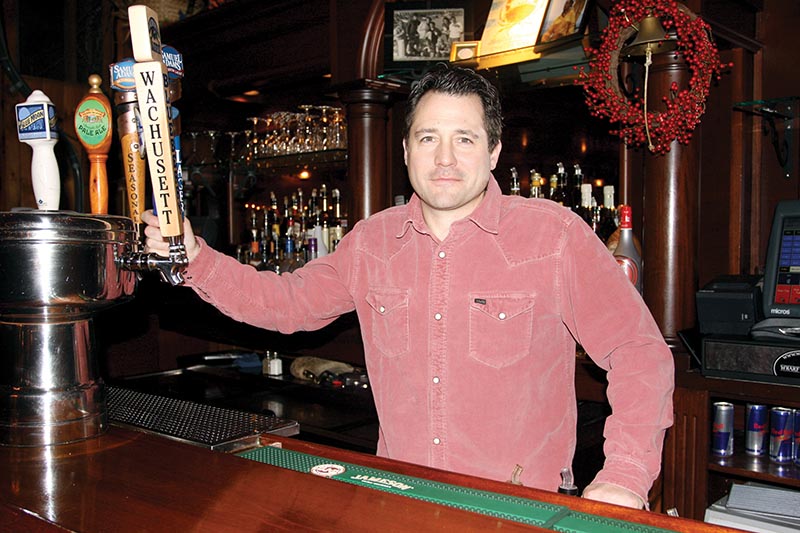Operating a restaurant on Martha’s Vineyard comes with its own unique challenges. For openers, many provisions must be sourced off-Island, we have an abbreviated season, and our costs are exceptionally high. On the plus side, the Island is a major destination for people eager to dine out.
We talked to a number of Island restaurant owners and chefs to get their take on how they approach their business, and what they do to give themselves an edge.
On staffing
“A successful business relies on a motivated, reliable staff, good management, and customer satisfaction. Your staff and your customers are the heart of your business.”
—Ralston Francis, chef and owner of the Edgartown Diner
“It has been very hard to find great people who love to work in the kitchen.”
—Will Coogan, operator and owner of the Wharf Pub and Rockfish in Edgartown
On operating year-round versus seasonal
“We have to make enough money to last through the off-season and be able to start up all over again. Each new year is like launching a new business. We take nothing for granted.”
—Renee Molinari of Beetlebung Restaurant & Bar
“We lose money November into May. It is 100 percent not about profit, it’s 100 percent about keeping the staff off unemployment and about serving the community and providing options. It is not a wise business decision to make.”
—J.B. Blau, owner of Copper Wok, Martha’s Vineyard Chowder Co., the Loft, and Sharky’s Cantinas
On sourcing
“We have developed some pretty good relationships with on-Island farms, which can certainly supply quality products on a reasonably consistent level for the size of our dining room. We do not always source locally; the philosophy is to do what we can to get the best product, no matter where it’s from, which sometimes is locally sourced and other times not.”
—Justin Melnick, executive chef at the Terrace at the Charlotte Inn in Edgartown
“There is less competition than off-Island, so pricing is higher and options are fewer. Going to markets and wholesale neighborhoods is huge in the city — even going to a restaurant depot can save thousands — but on the Island, we are limited, and if there is a storm, you may go without ingredients until the next delivery can get over.”
—J.B. Blau, owner of Copper Wok, Martha’s Vineyard Chowder Co., the Loft, and Sharky’s Cantinas
“You need to be able to bring staple menu items for Islanders year-round, and the classics in the summer! Not to mention being very careful with food costs and labor.”
—Will Coogan, operator and owner of the Wharf Pub and Rockfish in Edgartown
On liquor
“Vital. Yankee Magazine awarded us Best Craft Cocktails in New England two years ago. Our cocktails complement our espresso bar. We have operated espresso bars on the Island for 12 years.”
—Renee Molinari of Beetlebung Restaurant & Bar
“We could not survive without [liquor] at any location. The 15 percent to 35 percent of beverage sales helps to offset the rising costs of kitchen help, food, and insurances.”
—J.B. Blau, owner of Copper Wok, Martha’s Vineyard Chowder Co., the Loft, and Sharky’s Cantinas
On success
“I get up every morning knowing that this restaurant is a reflection of myself, and lucky for me, everyone that is involved is ready to back me up; we all have that drive to be successful. I’m blessed because it’s not a group of strangers, like most restaurants, but we are a family.”
—Jimmy Alvarado, executive chef of Isola in Edgartown
This article originally appeared on mvtimes.com




